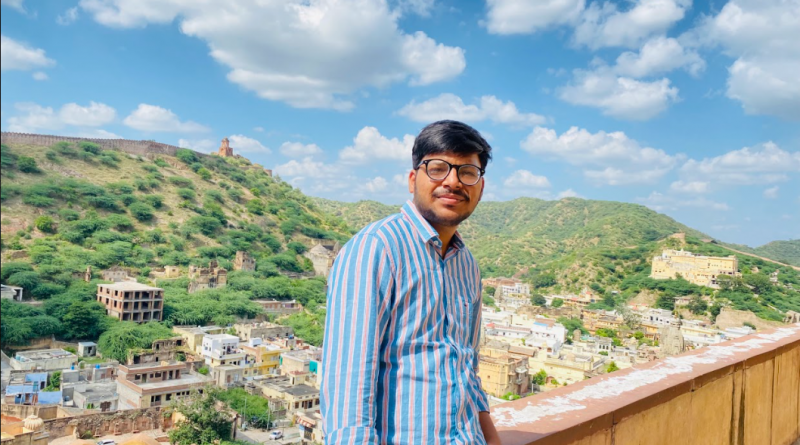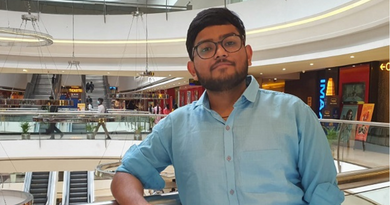Summer Internship in Belgaun – how it made me socially responsible
About Author: Nisha studied Human Resources Management from Tata Institute of Social Sciences, Mumbai. She did her internship in Belgaun as part of Rural Area Work Experience(RAWE) Village Internship Program in the field of Agriculture Technology.
The day I was asked to go to a village named Baillhongal in Belgaun under my Rural Area Work Experience (RAWE), village internship program as a part of my degree program B Sc. (Agriculture), I was very sad initially not because there would be work, but because it was difficult for me to stay in a village for such a long time as I was used to an urban lifestyle. But when I went and stayed there for a few weeks, I realized there were changes in myself.
We had to conduct method demonstrations for farmers and other villages who were involved in agriculture. The internship started with our interaction with farmers both marginal and progressive, and I was astonished to find that the condition of marginal farmers was really critical. The way they were exploited by big pesticide and insecticidal companies was something which made me ponder about today’s scenario of competitiveness in the market. As we all know, in India still most people (about 60%) are engaged in agriculture and allied activities, and with lots of human resource being involved there , the contribution of agriculture to GDP is less; if we look at the growth rate in agriculture, it is less than 4%. I always used to wonder why things were like this. And I was not able to find the answer until I visited this village and got an opportunity to see the reality.
In that village farmers used to dump a lot of fertilizers, which was more than recommended. They thought that the more fertilizers they’d use, the more yield they’d get. All these practices were just making their land infertile and saline, but the profit was with the fertilizer companies. The farmers out there were mostly using BT cotton strain and still they were not able to get the desired yield; the reason was the resurgence of sucking pest and a disease called reddening of cotton . Still they were so unaware of the reasons behind low yield and were relating it with lack of urea, DAP and were also applying pesticides which were for bollworms. The real picture of Indian agriculture was revealed before me. The government is framing so many programs for them but they were not able to get the benefits because of faulty implementation and middlemen. If we look at the condition of those who produce for the nation, it is something which will bring tears in our eyes.
We tried to make farmers understand the importance of biofertilizers like Rizobium, which can be used in legumes and would help in fixing atmospheric nitrogen and in turn farmers can save the cost of inorganic fertilizers. We also convinced them that it will maintain the soil health, and will lead to enhanced production. The different techniques like Azolla production, vermicuture, fishiculture were demonstrated by us in farmers’ fields, which helped in creating interest in them. What I learnt was that the participatory approach to any work is always worthwhile. The knowledge which we gain in college as a part of course is mostly theoretical, but when we come to the field for internship we get practical exposure to apply that knowledge. I learned about IFS, integrated farming system approach in college and my aim during the internship was to make at least one farmer adopt it and I was successful as farmers were also eager to learn more.
My team and I made them understand that taking other subsidiary enterprises with agriculture like poultry, horticulture, livestock etc. would always help them in income generation. We went for regular feedback system and invited experts like researchers and professors to clear the farmers’ doubts. All these things helped me in enhancing my knowledge and communication skills; and the most importantly, it brought a sense of social responsibility in me. I had to meet market vendors, gram panchayat members, pesticide manufacturers, veterinary doctors, agriculture scientists and farmers on a regular basis which helped in broadening my skills and attitude towards work.
The internship with rural people in the area helped me in finding my way, it helped me to think what I actually want which will not only satisfy me but will satisfy the society as well. It helped me in developing an insight and interest, which was buried deep inside my heart. I was able to recognize my inclination for society and its people and thus I decided to join Tata Institute of Social Sciences. I want to be a successful entrepreneur in agriculture and I know that the most important thing which will help me succeed is better human resource management. India is endowed with maximum human resource and if the available resources is best utilized whether in agriculture or any other sector, the day is not far when India will also be among the developed nations.
The day I was leaving the village brought tears to my eyes. Reasons were many like leaving the villagers, farmers, vendors etc. but that was the day when I felt a sense of responsibility and spirit of doing something good for the farming community. The internship made me strong, flexible to work for longer durations and in any situation, whether rural or urban. It made me learn another language as being North Indian I had to make conversation with farmers and others in local language which is Kannada. At last I want to conclude that internships help you in utilizing your present knowledge, exploring new things and in bringing out your hidden talent, interest and insights, and in my case it was “my hidden inclination for mankind”.
Was this interesting? You can also share your internship experiences, get featured and win prizes worth Rs. 50,000! Participate in Your Internship Story Contest 2012 today.



